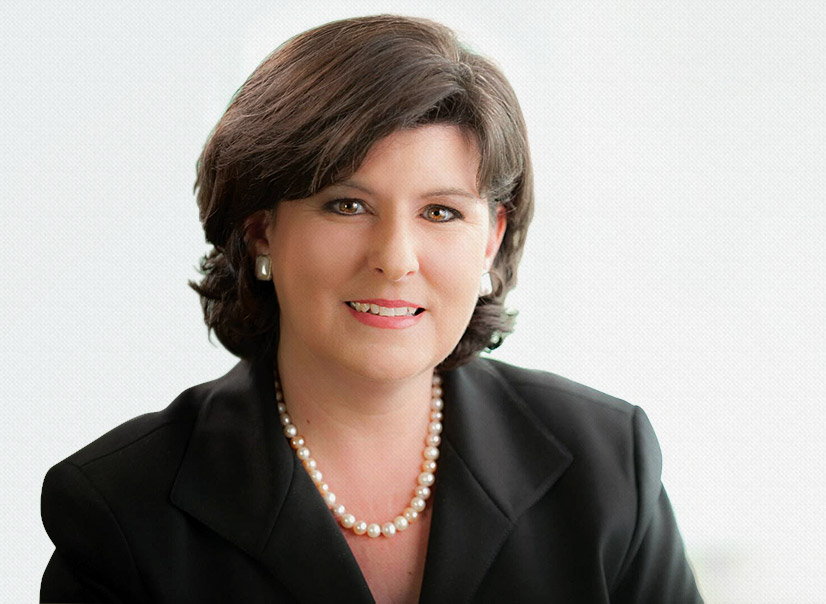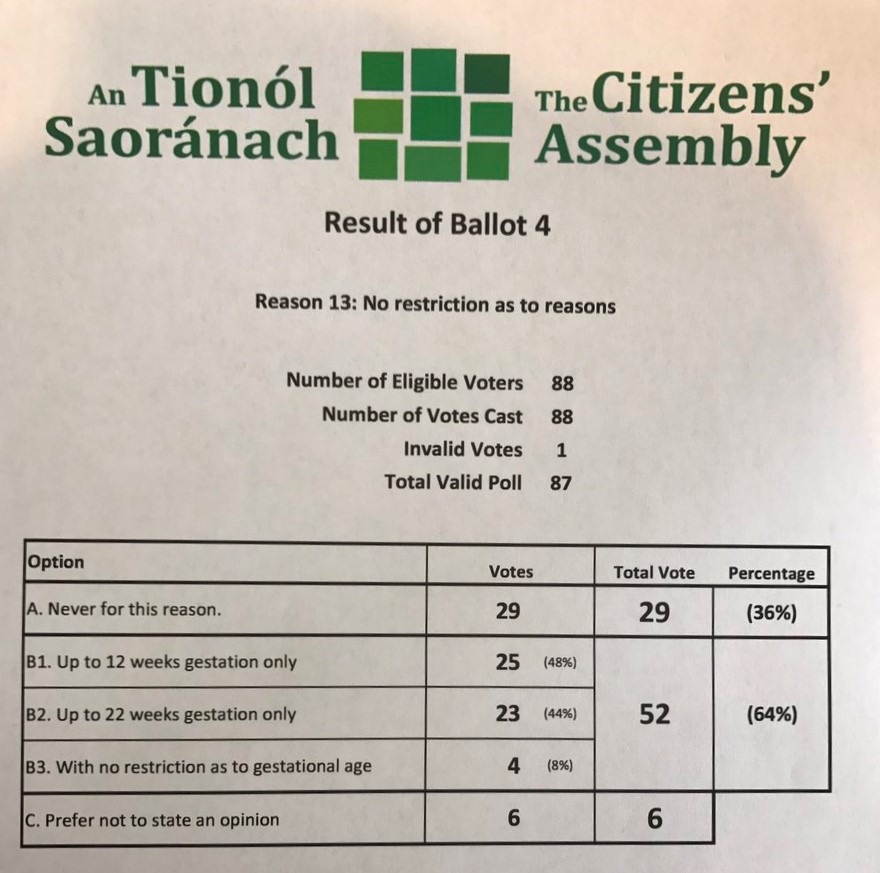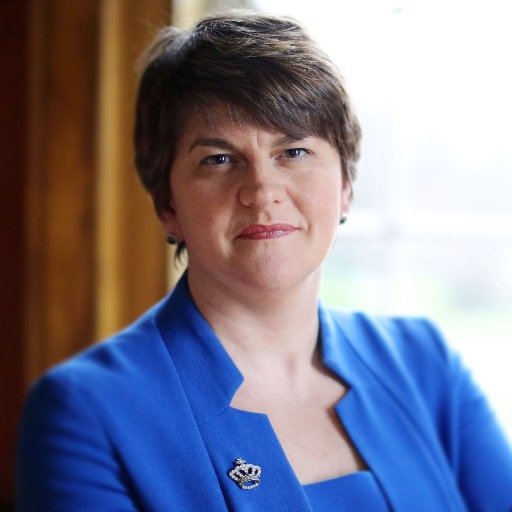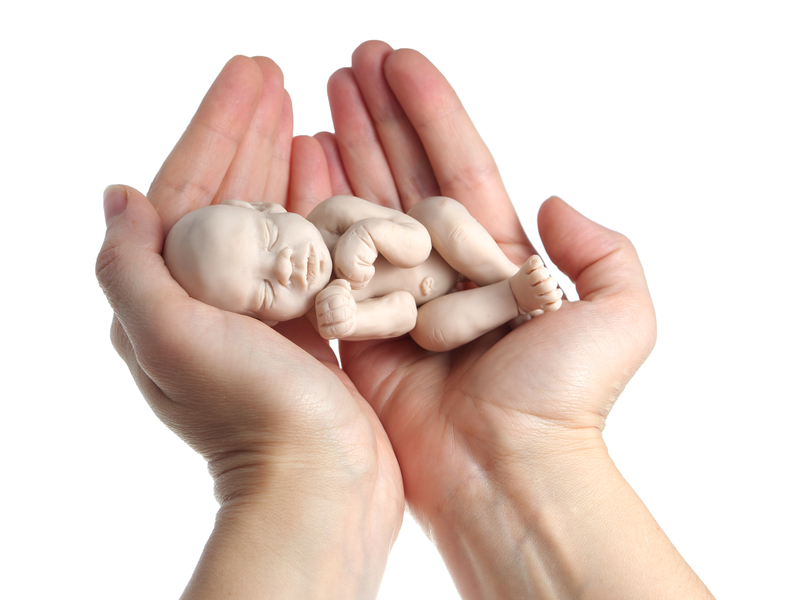
In another test of freedom of speech and religious liberty, the US Supreme Court has decided that it will consider the case of a baker who was fined for refusing to make a cake for a same-sex wedding celebration. Commentator Ryan Anderson described the case as one of “coercing . . . cultural dissidents” and said it has nothing to do with sexual orientation per se and everything to do with belief in what the nature of marriage is. “In case after case, bakers have had no problem designing cakes for gay customers for every other occasion. It’s just that an exceedingly small number can’t in good conscience use their talents to help celebrate same-sex weddings by baking a cake topped with two grooms or two brides—or, as in this case, with rainbow filling.” The Supreme Court will hear the case in its next term.

The funeral has taken place of one of the most prominent members of the pro-life movement in Ireland over the last 35 years after he passed away last week. Former Senator, Des Hanafin, was a founding member of the Pro-Life Campaign which succeeded in adding recognition of the right to life of the unborn to the Constitution in 1983. He fought valiantly over the next few decades to preserve that protection, even at the expense of his own political career, losing his seat in Seanad Eireann in 1993, though he regained it in 1997. He was also a prominent campaigner against divorce and same-sex marriage.
His funeral yesterday was attended by a host of dignitaries including the current leader of Fianna Fail, Micheal Martin, and numerous former Government Ministers. His daughter Mary Hanafin, herself a former Minister of Education, spoke of the ups and downs of her father’s life, including overcoming alcoholism which took a severe car crash to spur him into action and several illnesses and injuries. But what kept him going for so long were, she said, “the will of God, his own absolute, undying will to live, and the love and care of Mona [his wife], 60 years by his side”.
Ar Dheis Dé go raibh a anam dhílis.

Canada’s Senate has passed a bill that puts “gender identity” and “gender expression” into the country’s Human Rights Code and also adds them to the ‘hate crime’ category of its Criminal Code. Once the bill is signed into law, it will make it illegal to use the wrong gender pronoun of a transgender person. Critics say that Canadians who do not subscribe to gender theory, which says a person’s ‘gender’ has nothing to do with their physical body, could be accused of hate crimes, jailed, fined, and made to take anti-bias training. Justin Trudeau, Canada’s prime minister, warmly welcomed the Bill’s passage, tweeting to his followers: “Great news: Bill C-16 has passed the Senate – making it illegal to discriminate based on gender identity or expression. #LoveisLove.” Meanwhile, one of the bill’s fiercest critics, Psychology Professor, Jordan Peterson, decried the new law saying, “Compelled speech has come to Canada, . . . We will seriously regret this.”

A former Vice-President of breast cancer charity, the Komen Foundation, who resigned her job after an onslaught of criticism from Planned Parenthood has just won a seat in the US House of Representatives after a stunning victory in a by-election in Georgia.
In 2012, Karen Handel had been in charge of public policy at the breast cancer charity, Susan G. Komen for the Cure, when they cut an annual grant of $700,000 to Planned Parenthood. When word of the change was leaked to the press, Planned Parenthood unleashed a vicious, public campaign against Komen and Handel that drastically cut into Komen’s own funding and eventually caused the breast cancer charity to reverse its decision. Handel resigned and declined a severance package. She later wrote a book about the experience Planned Bullyhood: The Truth Behind the Headlines about the Planned Parenthood Funding Battle with Susan G. Komen for the Cure. Five years later, Handel became the Republican candidate in the special election for a vacant seat in the Georgia’s sixth district and Planned Parenthood ploughed over $700,000 into funding her Democratic opponent. However, Handel won the election by a four point margin and now is set to join Republicans in Washington as they pass a new budget that cuts half a billion dollars in grants to Planned Parenthood.

The all-party Oireachtas Committee tasked with turning the recommendations of the Citizens’ Assembly on abortion into concrete political proposals meets for the first time today and Minister for Health, Simon Harris, warned the country to brace itself for a referendum. Pro-life members of the Committee include Mattie McGrath, TD, and Senator Ronan Mullen. A majority of the members are pro-choice or have no clear, stated position.
Mr Harris said the Taoiseach made clear his desire for a vote on this next year, and so, the Minister said, “It’s very important that this country prepares itself to hold a referendum on the Eighth Amendment in 2018.” As the Oireachtas committee considers various proposals for amending or repealing the pro-life amendment, Minister Harris will work in parallel, examining possible wordings of a referendum and the legislative options that could follow a successful vote. “I expect it will get on with its job and my Department will prepare to deal with recommendations that arise from that committee,” said Mr Harris, who has been given charge of the issue by the Taoiseach. The Committee will hold its first public session in September and is expected to produce a report by Christmas.

The Scottish government has published a 2015 written request of DUP leader Arlene Foster asking that gay couples from Northern Ireland not be included in legislation to enable the conversion of civil partnerships to same sex-marriages in Scotland. The request had originally been made by Ms Foster’s predecessor, Simon Hamilton, in March 2015. When Ms Foster succeeded him as Finance Minister, she reiterated her predecessor’s concerns about the proposal in a letter of September 2015. “In this instance we can achieve legal certainty by restricting the definition of a ‘qualifying civil partnership’ so as to exclude civil partnerships which were entered into in Northern Ireland,” she wrote.

In a unanimous decision, the US Supreme Court has ruled that the First Amendment protecting free speech also protects speech that some might find racially offensive or hateful. Justice Samuel Alito wrote: “[The idea that the government may restrict] speech expressing ideas that offend … strikes at the heart of the First Amendment. Speech that demeans on the basis of race, ethnicity, gender, religion, age, disability, or any other similar ground is hateful; but the proudest boast of our free speech jurisprudence is that we protect the freedom to express ‘the thought that we hate.’” Justice Anthony Kennedy added that laws restricting such speech are an “egregious form of content discrimination” and, as such, are unconstitutional: “A law that can be directed against speech found offensive to some portion of the public can be turned against minority and dissenting views to the detriment of all. The First Amendment does not entrust that power to the government’s benevolence.”

Health Minister Simon Harris has said Ireland must deal with abortion “definitively”. He was speaking after the Abortion Support Network claimed that two women who had attempted suicide more than once were refused abortions in Ireland. Last night, Minister Harris said that he would make all possible resources available to draft legislation for a referendum on the issue. Abortion Rights Campaign spokesperson Linda Kavanagh warned that any legislation that might follow a referendum on abortion should allow for broad access to abortion services: “It is clear that any law that requires women and pregnant people to prove their circumstance before being allowed an abortion will not work in Ireland.” The Abortion Rights Campaign supports abortion-on-demand.

New figures show that more than one in five (21 per cent) people between the ages of 11 and 18 describe themselves as active followers of Jesus, and 13 per cent say they are practising Christians who attend church. The study, commissioned by a Christian youth organisation Hope Revolution Partnership and carried out by ComRes, suggested that levels of Christianity were much higher among young people than previously thought.
Interestingly, around 13 per cent of teenagers said that they decided to become a Christian after a visit to a church or cathedral, according to the figures, which showed the influence of a church building was more significant than attending a youth group, going to a wedding, or speaking to other Christians about their faith. The Bishop of Worcester, John Inge, who is the lead bishop for churches and church buildings, said: “This shows the power of church buildings – they are powerful for all sorts of reasons. “They give a sense of stability, and also the sense that the Christian faith has inspired people to build these extraordinary buildings,” he said.
